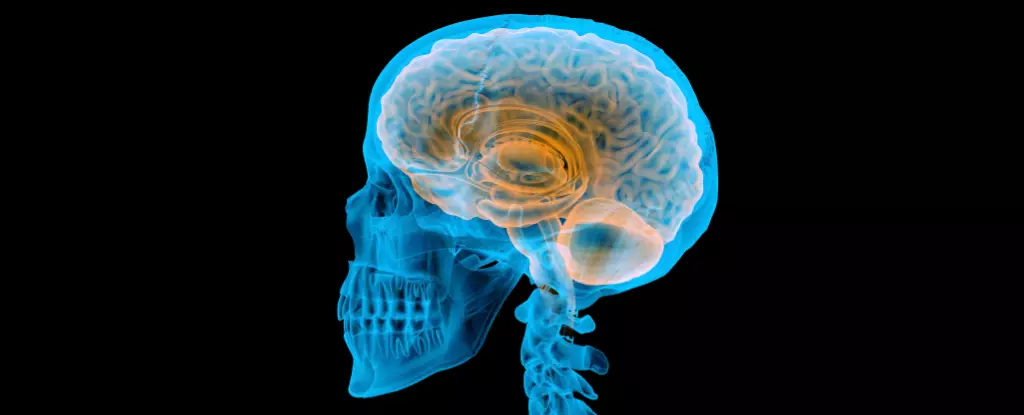The relationship between our gut microbiome and brain development is an evolving field of study that has garnered significant attention. Recent research suggests that the microbes dwelling in our intestines may have not only affected our physical health but could also play a crucial role in the evolution of our cognitively sophisticated brains. By examining the metabolic processes of these gut microorganisms, scientists are uncovering the intricate ways in which our digestive systems may have enabled the expansion of our brain faculties over evolutionary history.
The Brain Energy-Demand Equation
One of the pivotal findings of anthropologist Katherine Amato and her team at Northwestern University underscores the metabolic nuances of the human gut microbiome. Their studies emphasize that the primary function of gut microbes is energy production, which fuels our brains, rather than energy storage typical of many other species. Given the high energy demands of brain tissue, which is metabolically expensive to maintain, evolutionary adaptations in human metabolism could have mirrored these microbial functions. The research points towards an essential idea: the modifications in our metabolic pathways driven by gut microbes may have laid the groundwork for the development of our enlarged brains.
To explore this concept, Amato’s team utilized germ-free mice, introducing them to the gut microbiomes of three different primates: humans, squirrel monkeys, and macaques. This unique experimental design allowed the researchers to observe variances in physiological responses based on the specific microbiomes they received. The result revealed fascinating findings regarding energy expenditure and metabolic efficiency in relation to brain size and function.
Interestingly, both humans and squirrel monkeys, categorized as ‘brain-prioritizing’ species, showed significant differences in metabolic patterns when compared to the relatively small-brained macaques. The mice with human microbiomes exhibited increased fasting glucose levels and higher triglyceride concentrations while gaining less weight. This evidence strongly supports the hypothesis that the human gut microbiome promotes an efficient energy allocation system that ensures a steady supply of glucose—an essential fuel for cognitive processes—rather than converting excess energy into fat deposits.
The Importance of Evolutionary Comparisons
Comparing the microbiomes across species has prioritized the understanding of how energy metabolism has co-evolved with brain development. Squirrel monkeys, despite being distantly related to humans, share microbial traits that optimize energy production, similarly reflecting the evolutionary path that led to enhanced cognitive capabilities. In stark contrast, macaques exhibit a microbiome that favors the storage of energy in fat, suggesting a metabolic strategy less dependent on cognitive demands.
The implications of these findings shed light on a considerably unexplored field of inquiry regarding the evolutionary pressures that shape neurological and metabolic physiology. The intricate relationship between gut symbionts and brain function prompts us to rethink the role of microbiomes beyond mere digestion. Instead, they appear to be integral to our neurological evolution.
Adding another dimension to this discussion are the trade-offs between body growth and brain development observed in mammals, including humans. Amato and her colleagues propose that during human maturation, the energy demands of the brain fluctuate inversely with metabolic growth patterns. This notion is particularly evident during key developmental stages, such as from infancy to puberty, where periods of rapid growth correlate with varying energy demands for brain activities.
In mid-childhood, when our brains require peak energy, the growth rates slow down. This cyclical pattern emphasizes how our biology has tailored energy distribution to meet the expansive needs of brain tissue while also accommodating general growth. By integrating this evolutionary perspective with our understanding of gut microbiomes, we gain insight into how our bodies have adapted over thousands of years to create a balance between physical growth and cognitive development.
The study of gut microbiomes extends into an exciting realm of evolutionary biology, revealing how these microorganisms may have influenced the development of human brains. By facilitating energy metabolism that supports cognitive functions, our gut microbes play a vital role, and their impact cannot be underestimated. The evolving narrative surrounding our relationship with these symbiotic organisms encourages further exploration into their potential roles in health, disease, and even evolutionary adaptations. As we untangle these complex interactions, we not only understand human evolution better but also pave the way for novel insights into human health and cognition.


Leave a Reply